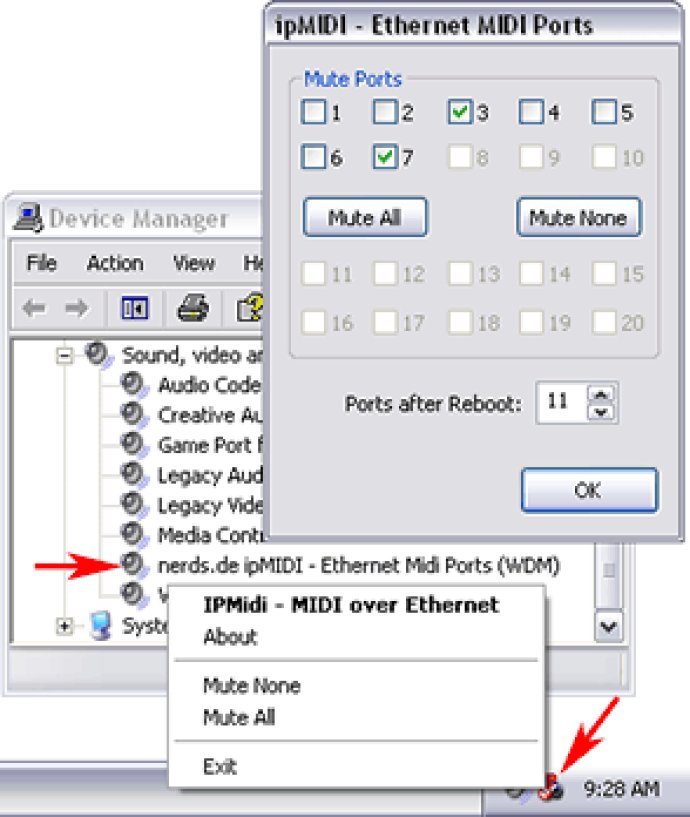ipMIDI is an Ethernet driver that enables communication between applications on different PCs without the need for MIDI interfaces. With lower latency than hardware legacy devices, it uses Multicast to send MIDI data hassle-free without client-server configuration.

Users can easily communicate with other MIDI applications on the same LAN without the need for new physical connections. This also means that if you're running a wireless IP network, you don't need cables at all. ipMIDI sends MIDI data over Multicast UDP, not TCP, making it easy to use. Simply select "Ethernet Midi" in your audio application with no configuration or client-server hassle. You will not have to define a sender or a receiver, as ipMIDI automatically assigns an ethernet MIDI OUT port for your sending application. Every single application on your network can receive the data by opening an ethernet MIDI IN port simultaneously.
ipMIDI offers a near to zero latency and up to 1 Gbit/s. As a native Windows WDM kernel mode driver, ipMIDI expectations for latency are less than 0.5 msec. This provides more efficient data transfer than when using legacy equipment and real MIDI cables. When using a standard MIDI interface, data is transmitted at a rate of 31.2 kbaud, which can easily break due to excessive Polyphonic-Aftertouch MIDI messages. However, with ipMIDI, the limit is defined by your network data rate.
The software provides up to 20 Ethernet MIDI IN Ports and 20 Ethernet MIDI OUT Ports, which are adjustable. By transmitting all MIDI over a single port, every computer in the ipMIDI network can receive it, thus replacing over 20 MIDI cables and establishing an n-way MIDI network. Users can select only the number of ports they require and install them on their system accordingly. These ports will be visible in your audio program, making it easy to use for all your MIDI transfer needs.
Version 1.9.1: small bugfix release